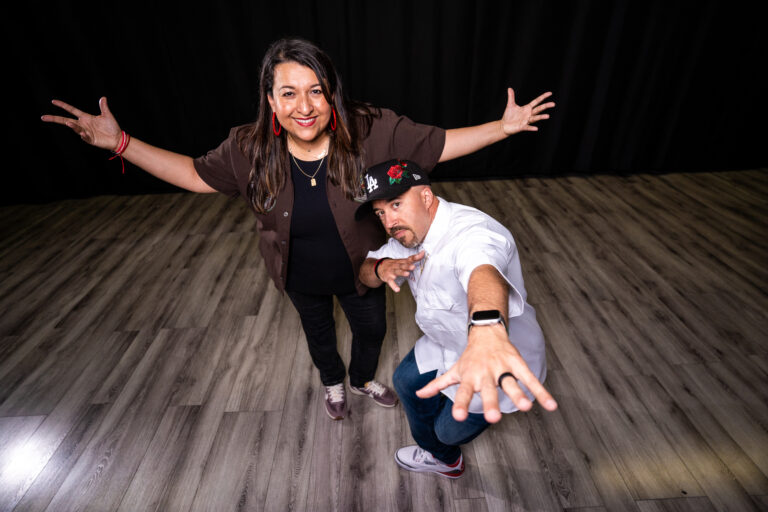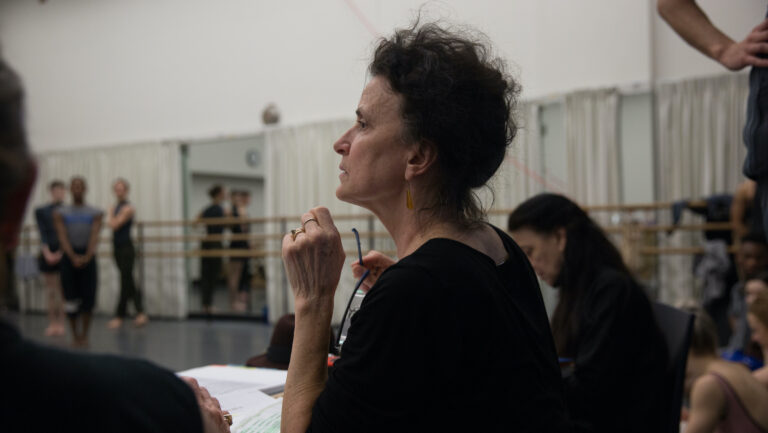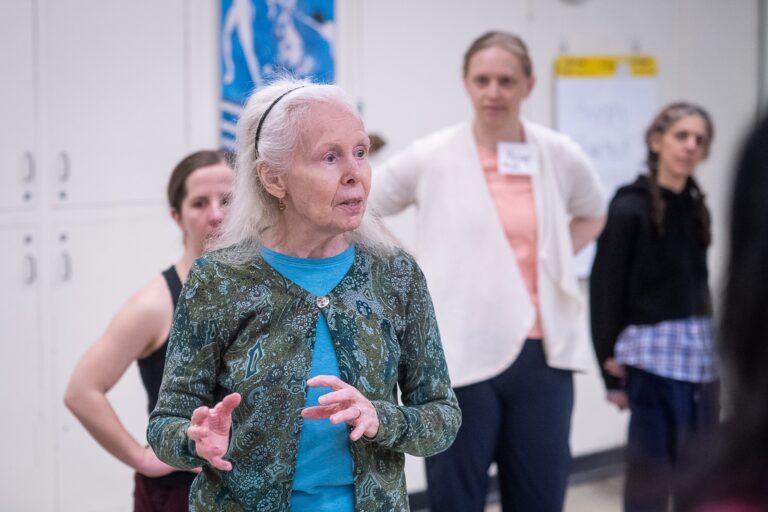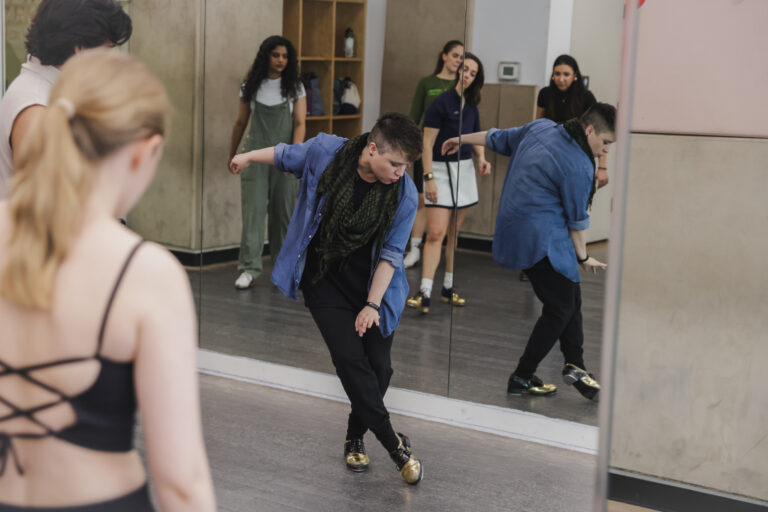
Ronald K. Alexander didn’t plan on a dance career.
Diagnosed with scoliosis at 16, Alexander underwent a surgical procedure that left him in a body cast for most of his time at Western High School in Washington, DC. Later, when Alexander’s doctor said he would have to deal with arthritis by the age of 40, he refused to cave to the pre-diagnosis. Instead, he would audition for the Workshop for Careers in the Arts, established by Peggy Cooper Cafritz and Mike Malone, a precursor to the illustrious Duke Ellington School for the Arts in Washington, DC. Drawn to graphic art and music (Alexander played the violin and clarinet as a teenager), he steeped himself in the dance curriculum, too—a way to keep his spine flexible, he says. The workshop led him to new paths: “I went into the program as a visual artist, and I came out a dancer,” Alexander recalls. From that point on, he couldn’t stop dancing.
While attending Boston University to study communications, Alexander became obsessed with studying ballet. “I was doing all of this because of my spine,” he says. “I really did not think that I would ever become a professional dancer.” That was until he found himself training at Canada’s National Ballet School. “The next thing I knew, I was dancing with Rudolf Nureyev at the Metropolitan Opera House in New York City,” Alexander remembers. This was an accomplishment by any measure, but especially for a Black man in the very white ballet world.
His performance career—he landed positions with the National Ballet of Canada, the Iranian National Ballet, the Frankfurt Ballet and Hamburg Ballet—came to an end by choice. “I could have gone on, but I wanted to stop at the top of my career as a performer,” Alexander explains. He dipped his toes into dancemaking but discovered his calling as an educator. He found that he not only enjoyed teaching, but was an invested mentor. “Mr. Alexander’s biggest contribution to dance and dance education is his mentorship of students, specifically dancers of color,” says Sebastian Garcia, Alexander’s former student at the Harlem School of the Arts and the French Academie of Ballet. “He is not someone who gives up on dancers. He always offers something to the next generation.”

To bolster his teaching profile, Alexander earned a master of fine arts in dance from New York University. The education afforded him opportunities to work as a choreographer, teaching artist or administrator at Dance Theatre of Harlem (under the legendary Arthur Mitchell), The Ailey School, Harlem School of the Arts, the Joffrey Ballet School in New York City, the French Academie of Ballet and the Nutmeg Conservatory for the Arts. His work at those institutions culminated in his current posts: He is on faculty at The Ailey School, the Stella Adler School of Acting, the Black Arts Institute and Concepts Dance Academy. Previously, he was the director of education at the RestorationArt Youth Arts Academy in Brooklyn, New York, an organization dedicated to training and providing enrichment opportunities to young people of color.
Alexander says his proudest moment as a teacher is getting to watch his students perform onstage. Many of them wouldn’t be where they are today without his support, particularly in a world, like ballet, that is deeply Eurocentric; a world where ballet slippers and leotards in hues that match the skin tones of Black dancers only recently came into production. “During my development as a dancer, I was very fortunate to have him, among other mentors, to see something in me,” Garcia says. “He also was willing to take me to see major dance performances when my family could not afford tickets. In these moments, he wanted something to be clear: that I never let my love for dance diminish. Mr. Alexander was also very supportive when I was dealing with a major injury,” says Garcia. “He offered stories of his serious injuries and his recovery back to the stage. These actions helped me become the dancer I am now.”
“Ballet is a European artform based on white bodies,” says Alexander. “But that doesn’t mean that people of color can’t do it or cannot participate in it.” His performance lineage and embrace of young dancers of color who feel they don’t fit the typical ballet mold has created space for a more colorful ballet scene, in dance-education institutions and professional companies alike. Some of his past students include Waverly T. Lucas II and Nena Gilreath (co-founders and co-artistic directors of Ballethnic), former Frankfurt Ballet principal Alan Barnes, Metropolitan Opera chief diversity officer Marcia Sells, choreographer Sidra Bell and director-choreographer Camille A. Brown. He has made a way for himself—and such representation matters: It is evidence that a long career in the dance arts is possible, and not just for those who fit the racial and physical preferences of the ballet world.
Now 71, the dance teacher extraordinaire has no plans of stopping. “I’m still running around like a 30-year-old,” Alexander says with a wink. “And I don’t see myself slowing down.”
Editor’s note: Tickets for the 2022 Dance Teacher Awards are available for the ceremony only or for the ceremony with cocktail reception (please reach out to [email protected] to inquire about group ticket pricing). Proceeds from the cocktail party fund the Dance Teacher Scholarship at MOVE|NYC|. Don’t miss the chance to join in community with and be inspired by this network of dance teachers. Get your tickets now! We can’t wait to see you there!




